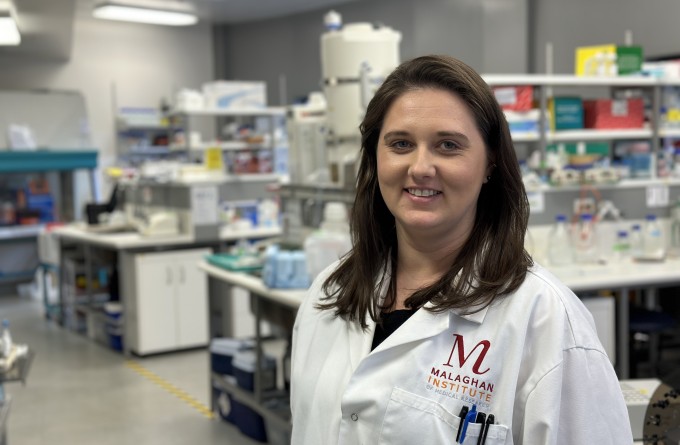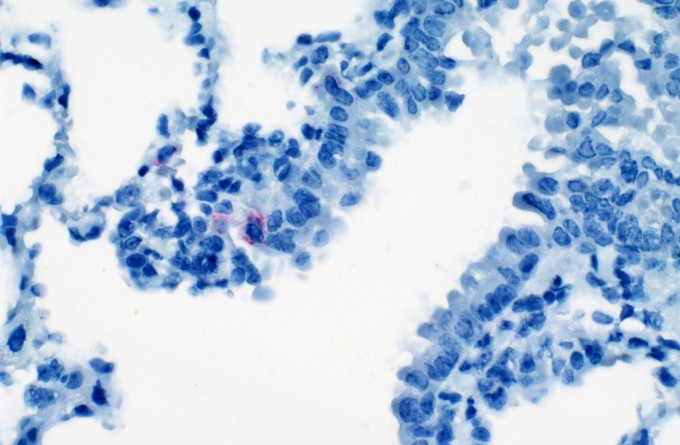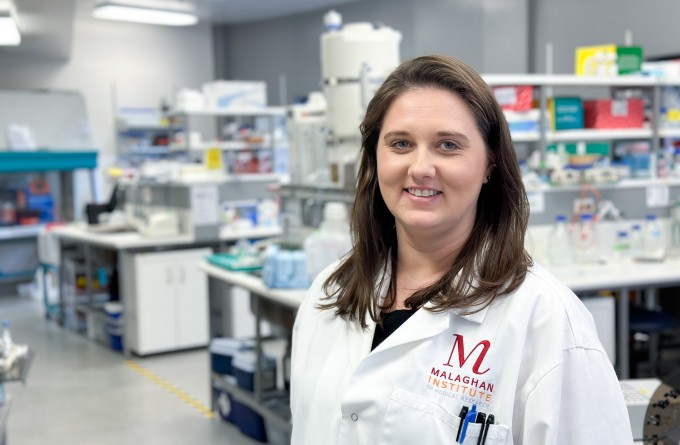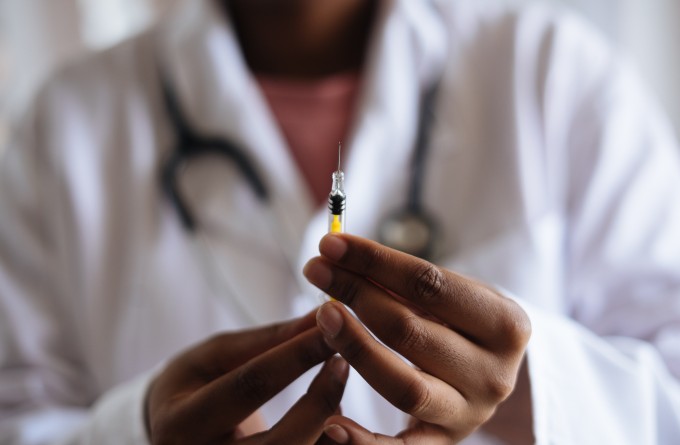8 February 2023
The recent pandemic has heralded advancements in RNA technology and as the Covid storm calms, we are left with a clear sight of the potential this technology has in our future. Rebecca works in the Hugh Green Cytometry Centre at the Malaghan Institute. As the powerhouse of the institute, the Hugh Green Cytometry Centre houses state-of-the-art research technologies, among these is New Zealand’s first end-to-end preclinical RNA therapeutics platform.
“Thanks to significant donor funding and capability built as part of Vaccine Alliance Aotearoa New Zealand, we can now carry out all the steps to develop an RNA-based therapy – from designing a template for a unique target, synthesising the RNA molecules and packing them for safe delivery to the body. We can then do the preclinical testing to understand if an appropriate immune response is triggered,” says Rebecca.
Rebecca is further developing the technology that was used to make mRNA vaccines for Covid-19. This technology works through a carefully designed RNA molecule in a lipid-based envelope. Once injected in the body, the envelope delivers the RNA molecule safely to a cell. The cell’s machinery then reads the RNA molecule’s instructions to produce a specific protein. In the case of the COVID-19 vaccine, this was the spike protein which empowered our immune system to mount a response to a COVID-19 infection.
“It’s so exciting to be part of something that is going to make a difference to New Zealanders. The technology has the potential to truly empower us to find solutions to problems that uniquely afflict our society.”
Rebecca is working to improve the efficiency and efficacy of the RNA therapies being produced at the Malaghan Institute by ensuring that the RNA strands have been produced in a way that will deliver the best immune response.
“It’s important that the RNA molecules that we use in a vaccine look like RNA molecules that the body would produce. Otherwise, our immune system would remove the therapy before it has a chance to take effect and trigger the targeted immune response we’re looking for.”
To do this, the Malaghan Institute has a ‘fast protein liquid chromatography’ (FPLC) machine which purifies and processes RNA molecules in a specific way. Rebecca is also working to develop robust scientific methods to enable wider use of this technology.
“We’re making sure this technology can be accessible to everyone who may have a need to develop a therapy. This means that these methods can be accessible to labs across the country,” says Rebecca.
“RNA technology gives New Zealand the ability to develop vaccines and treatments for a wide range of human diseases – from cancer to influenza – as well as diseases that affect our agricultural sector and native animals. It gives us the autonomy to tackle New Zealand specific problems – including diseases that disproportionately affect our Māori and Pasifika populations – problems that might not be profitable enough for big pharma. And in case there’s a future pandemic, we have the resources to start working on our own vaccines and therapeutics.”
“This is a landmark technology that will change New Zealand’s scientific, medical and biotech capabilities.”
Rebecca says the progress the Malaghan Institute has made in developing an RNA platform as part of Vaccine Alliance Aotearoa New Zealand will only accelerate with Government investment in a national RNA technology development platform as part of last year’s budget.
“It’s so exciting to be part of something that is going to make a difference to New Zealanders. The technology has the potential to truly empower us to find solutions to problems that uniquely afflict our society.”
Growing up in Wellington, Rebecca always had a keen interest in problem solving and science. She went to the University of Otago to study health science where she was captivated by microbiology. This took her on a path to Professor Peter Fineran’s lab in the Department of Microbiology and Immunology where she used specialised technologies to uncover the secrets of cells. After a stint bartending in Canada and an industrial placement at Fonterra, Rebecca became desperate to fuel her curiosity. So she headed to the Netherlands to embark on a PhD in Molecular Biology in Dr Stan Brouns’ lab at Delft University of Technology in the Netherlands.
“Doing my PhD in a well-funded lab made me realise the power of what investing in good technology can do for research. Better technology is a beacon for scientific talent and improves the capability to do more complex experiments. This leads to more papers being published, which, in turn, leads to more funding,” says Rebecca.
“It was a great experience, but I really missed New Zealand. I was keeping an eye out for opportunities opening up at home and one day I came across my current position. The Malaghan Institute stood out to me as a place of opportunity in New Zealand.”
Coming home after years on the other side of the world, Rebecca was keen to use what she learned abroad to improve the lives of New Zealanders.
“I see this as a chance to use my knowledge and skills to make a difference in New Zealand. I feel lucky to be able to contribute to society in a way that I can clearly see would make a difference. This is a landmark technology that will change New Zealand’s scientific, medical and biotech capabilities.”
Related articles

Malaghan and National Institutes of Health research receives prestigious award
5 March 2024

Scientists identify interferon-gamma as potential SARS-CoV-2 antiviral
13 December 2023

New research suggests hookworms could offer protection from severe Covid symptoms
14 August 2023

Kiwi-made Covid-19 booster vaccine offers 100% protection in preclinical study
3 March 2023

Clinical study shows booster needed to protect against Omicron
22 December 2022

Samoa Capital Radio - science series with the Malaghan Institute
3 October 2022
